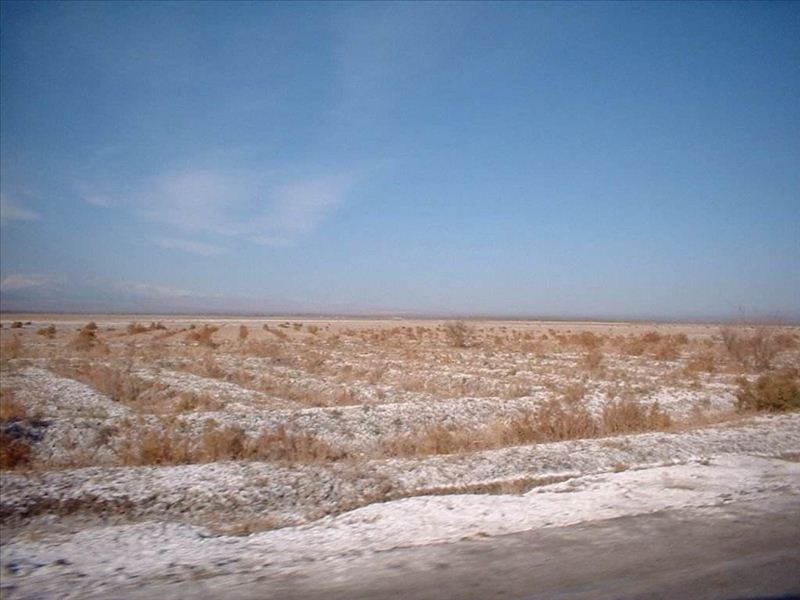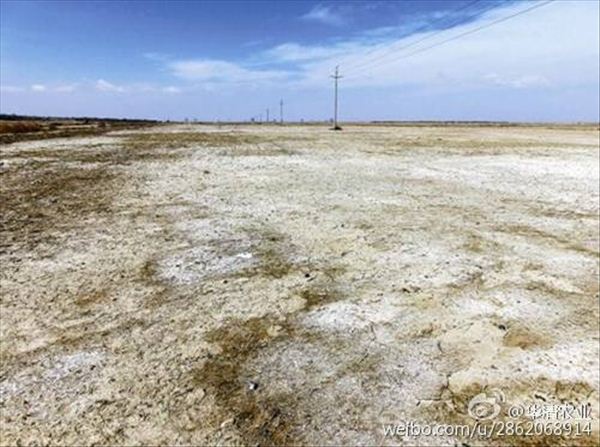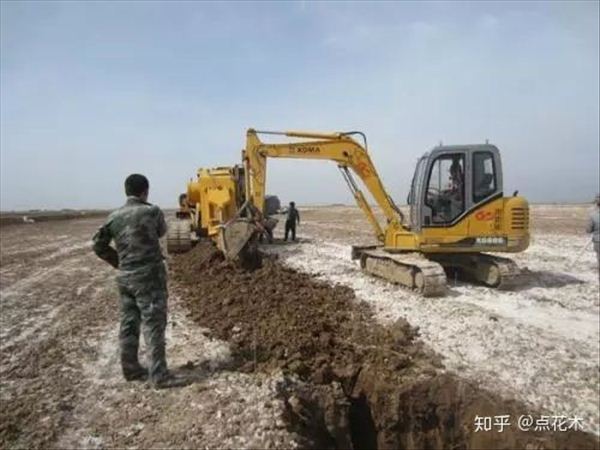On December 22, 2018, before the launching ceremony and theme charity dinner of the “Young Seedling Project” (“青苗计划”) charity project, Dr. Zhou Jinfeng, the Secretary-General of CBCGDF and Wang Fei, a researcher from the Institute of Soil and Water Conservation, Chinese Academy of Sciences & Ministry of Water Resources (CAS & MWR) held a brief meeting on the cause of the salinization of soil in Xinjiang, its tackling methods, and the approaches of promotion of the methods were discussed in depth, and the two sides reached a preliminary intention.
Xinjiang is China's largest saline-alkali soil area, and most of the heavy saline-alkali land has long been unavailable. According to media reports in 2014, the area of saline-alkali land in Xinjiang reached 110,000 square kilometers, accounting for about one-third of the national saline-alkali land area, and 32.6% of the existing cultivated land has been sub-salted. Because Xinjiang is located in an inland closed environment, abundant salt materials can only circulate in the area, resulting in a strong residual salt accumulation and modern salt accumulation process. These are the main factors that cause low-yield agriculture in Xinjiang, which seriously restricts the development of agriculture in Xinjiang.
According to the survey conducted by the agricultural sector, soil salinization reduces the grain output of Xinjiang by about 720 million kilograms per year, accounting for 8.6% of the total grain output of the year; reducing cotton production by 130,500 tons, accounting for 9% of the total annual cotton production; The economic loss is about 3.5 billion yuan, accounting for about 8% of the total crop production value of the whole year.
In order to solve the problem of soil salinization and turn poor land into good farmland, the people of Xinjiang have thought of many solutions. It is useful to dig up the alkali canal and irrigate with a large amount of water. But in the end, due to the scarcity of fresh water resources, once water shortage occurs, it would be salinized again, and the solutions were failed.
Research Wang Fei said that large-washed salt can initially solve the problem of soil salinization, but we must come up with a model that can recycle and sustain the way of tackling the salinization. This is a long-term solution.
During the meeting, Dr. Zhou and Wang Fei exchanged their professional opinions and reached preliminary cooperation intentions. They hope that through the small-scale experiment of solving soil salinization in Xinjiang, they will try their best to tackle the hot potato of Xinjiang’s saline-alkali land and provide technical support and typical cases for the improvement of saline-alkali land in the country.



(Photo credit: CBCGDF)
Original Chinese article:
http://www.cbcgdf.org/NewsShow/4854/7205.html
